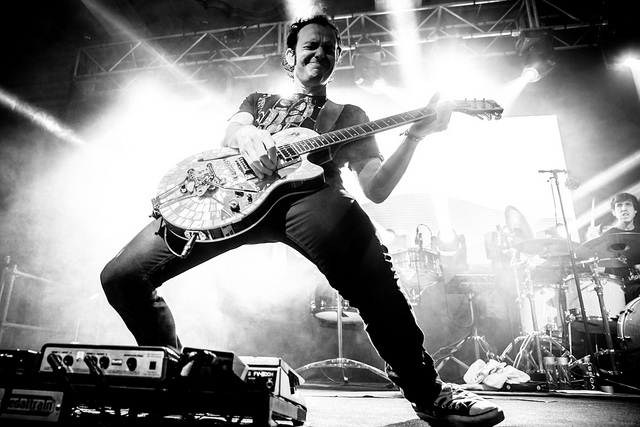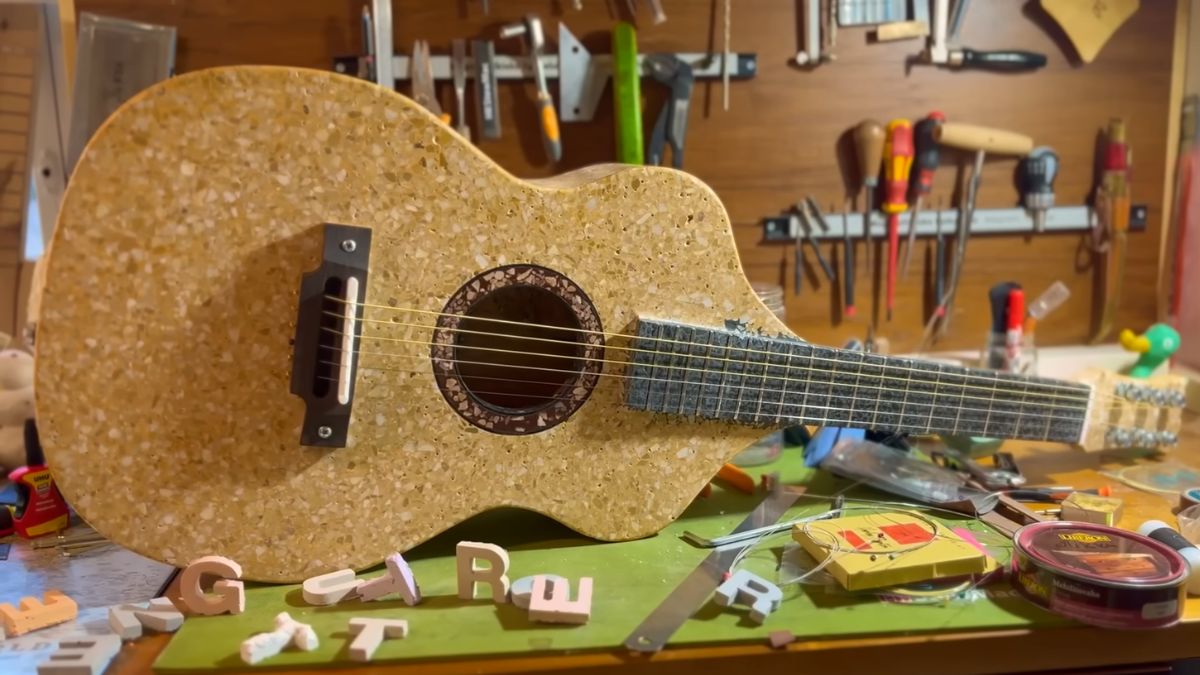Beyond the Fretboard: Improvising Vs. Soloing, Part 1

Great guitar solos are sometimes romanticized to the point of mythical proportions.
It's one of the few areas where it's still considered acceptable to concede to yourself, "You can't teach that."
While this might seem like a harmless idiom to utter when you're filled with a sense of awe, it can also be detrimental to your longterm growth as a musician.
Jazz musician and author Mark Levine opens up his book Jazz Theory with the following statement: "A great jazz solo consists of: 1 percent magic and 99 percent stuff that is Explainable, Analyzable, Categorizeable, Doable."
Even though he is specifically discussing Jazz, this mentality can be applied to any genre and seems to refute the wisdom of that previous expression we were discussing.
Does this mean we should no longer be awe-inspired when listening to a great guitar solo and only focus on analyzing it like some kind of a science experiment? Of course not. You shouldn't think too hard about why you like a piece of music the first few times you hear it. Just enjoy it.
But instead of feeling inferior or intimidated by the piece, let yourself become motivated by it. Thinking to yourself, "That sounds incredible. I want to learn how to play like that" Is far better than, "I'll never be that good—that stuff can't be taught." The latter is self-defeating and boxes you in with imaginary boundaries.
Get The Pick Newsletter
All the latest guitar news, interviews, lessons, reviews, deals and more, direct to your inbox!
A revelation I had as a beginner guitarist was when I became aware of the existence of scales. Before that moment, I had always thought the opposite of Levine's quote. But once I realized there was a road map that could help guide any musician through lead playing, I had officially become enamored with the instrument.
So is that the secret to great guitar solos—knowing scales? Unfortunately, no. But it's definitely a good start.
From that point, you should take the time to find out what type of player you are. Do you feel impelled to improvise on the fly? Or do you prefer sitting down and methodically crafting a guitar solo? These are two sides of the same coin but can definitely spark some intense debate among veteran players. Many believe guitar leads should be improvised and felt "in the moment." I'm sure some of the best rock guitar solos of all time have been recorded in the studio using this approach. However, I'm also confident that a decent amount have been labored over meticulously with almost every detail accounted for and thought out.
Again, both of these approaches can be taught, learned and practiced. But is either one better than the other? I think that depends on your personality as a player and the results you're looking to achieve. A spontaneous performance can potentially breed mistakes but can also add a raw and authentic dimension filled with surprisingly good results.
Conversely, a deliberate and calculated solo section can sound like every piece fits almost perfectly together but might lack some "soul." In my opinion, there is no right or wrong way to go. What matters is the end result.
The similarities can be likened to that of other creative works such as stand-up comedy or acting. Some comedians have pre-planned jokes and bits they're constantly perfecting so that they can effectively deliver the punch line to an eager audience. Whereas other comedians might do better when they feed off of the spontaneity of the moment and ad-lib a substantial portion of their set.
Likewise, some actors and actresses feel more comfortable on stage performing in a more improvisational environment (as opposed to acting in a movie where scenes can be done over and over again to obtain the perfect performance). As long as the final product is of high caliber and the audience is entertained, it's up to the performer to decide which approach is best for them.
So this is where we'll leave it for Part 1 of this column. In the next installment, I'll discuss specifically how both approaches are very similar to each other in their theoretical explanations and applications. Except that one is accomplished in real time while the other is composed before the actual performance.
I'll leave you with a fascinating video from researcher Charles Limb, where he discusses the neurological effects that musical improvisation has on the brain. Enjoy!
Chris Breen is a New Jersey-based guitarist with 14 years of experience under his belt. He, along with his brother Jon (on drums) started the two-piece metal project known as SCARSIC in 2011. Due to a lack of members, Chris tracked guitars, bass and vocals for their self titled four-song demo (available on iTunes, Spotify and Rhapsody). They have recently been joined by bassist Bill Loucas and are writing new material. Chris also is part of an all-acoustic side project known as Eyes Turn Stone. Chris teaches guitar lessons as well (in person or via Skype). If you're interested in taking lessons with Chris, visit BreenMusicLessons.com for more info.
“Every tour was the best I could have done. It was only after that I would listen to more Grateful Dead and realize I hadn’t come close”: John Mayer and Bob Weir reflect on 10 years of Dead & Company – and why the Sphere forced them to reassess everything
“Last time we were here, in ’89, we played with Slash on this stage. I don't remember what we did...” Slash makes surprise appearance at former Hanoi Rocks singer Michael Monroe's show at the Whisky a Go Go









